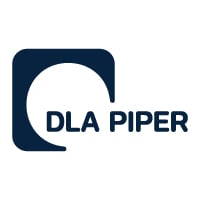
ABB Senior Legal Counsel, Central America and Caribbean | ABB


Amir Lastra-de León
ABB Senior Legal Counsel, Central America and Caribbean | ABB
Legal team size: Approximately 20 (in the Americas)
Major legal advisers/external counsel:
McConnell Valdés; Jackson Lewis; Schuster LLC-Littler; Sierra Serapión
Country you are primarily based in: Puerto Rico; I also cover Central America and Caribbean countries
What are the most significant cases and transactions that your legal team has recently been involved in?
The Puerto Rico Courts have confirmed via judgment that the way in which the company in Puerto Rico sets its rules and supervises its employees is the right one. For example, in a recent case, the Court decided that under Puerto Rico’s Law 80 regarding unjustified dismissal, the company had created regulations for its proper functioning and that the employee who complained was dismissed fairly. The Court determined that the employee had been informed of the rules and knew what was allowed, what was not allowed, and the consequences. When the employee violated the rules, the employer initiated a process of progressive discipline. The Puerto Rico Courts have also confirmed to the company via judgment that Puerto Rico’s Act No. 115 regarding “Retaliation” does not protect workers from disciplinary action concerning their performance. In other words, the mere fact that an employee requests a meeting to discuss employment conditions is insufficient to determine that the participation is a protected activity under Law 115.
Which recent political, economic or regulatory changes have impacted your work the most in the past year?
Regarding regulatory changes, we must take into account the 2023 U.S. Supreme Court decision to overturn the Chevron Doctrine. In summary, in Relentless v Department of Commerce and Loper v Raimondo, two companies brought their cases to the Supreme Court, asking the justices to weigh in on the Chevron Doctrine. The petitioners were subject to federal rule requirements and alleged that the federal agency lacked statutory authority to adopt the rule. The District Court rejected the petitioners’ challenge, granting summary judgment to the government. The lower court applied Chevron U.S.A. Inc. v NRDC, Inc., 467 U.S. 837 (1984), for judicial review of an agency’s interpretation of a statute. The Court of Appeals affirmed. The question presented to the Supreme Court was whether the Court should overrule Chevron. Under Chevron, Congress is presumed to have allocated interpretive authority to the agency. The Chevron doctrine gave weight to the expertise that federal agencies could bring. However, U.S. Supreme Court Justice Roberts explained that the Chevron Doctrine was inconsistent with the Administrative Procedure Act (APA), a federal law that provides instructions for courts to review actions by agencies. The APA directs courts to “decide legal questions by applying their own judgment” and, therefore, “makes clear that agency interpretations of statutes are not entitled to deference. It remains the responsibility of the court to decide whether the law means what the agency says.” However, Justice Roberts also indicated that the court’s decision would not require earlier cases that relied on Chevron to be overturned. This decision will have a significant impact on business interactions with administrative agency rule-making, as the courts may now have greater influence.
How does your legal team collaborate with other departments within the company?
Technology provides tools to enhance knowledge of legal matters and integrity, making legal information more accessible. Workflows across business units help track requests and add value. Risk reviews enable collaboration with multiple business units, managing legal risks, and ensuring compliance.
Senior legal counsel, Puerto Rico, Central America and Caribbean | ABB